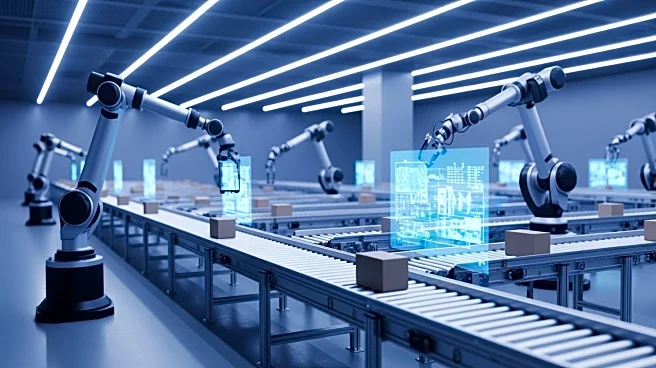What's Happening?
The role of supply chain managers is undergoing a significant transformation due to the integration of artificial intelligence (AI) technologies. Traditionally, supply chain managers have been tasked with
tracking shipments, coordinating with carriers, and managing visibility through various disconnected systems such as spreadsheets and emails. However, AI is reshaping these responsibilities, allowing managers to shift from reactive to proactive roles. AI systems can consolidate, analyze, and forecast data in real-time, enabling managers to focus on interpreting data and making strategic decisions. This evolution is moving managers from being data collectors to decision-makers, and from firefighters to orchestrators of operations.
Why It's Important?
The shift in the role of supply chain managers is crucial for the industry as it enhances efficiency and strategic value. By automating routine tasks, AI allows managers to focus on higher-order work such as problem-solving, strategy development, and leadership. This transition is expected to improve brand reputation, sustainability, labor practices, and customer trust, making the role more strategic and focused on building long-term value. The integration of AI in supply chain management is likely to lead to more resilient and customer-centric supply chains, benefiting businesses and consumers alike.
What's Next?
As AI continues to automate repetitive tasks, supply chain managers will increasingly focus on strategic planning and leadership. They will be expected to design workflows that prevent recurring issues and manage operations from a higher vantage point. The future of supply chain management will involve orchestrating operations with simulation engines and duplicative systems that flag risks before they occur. Managers will need to adapt to these changes by developing skills in strategic decision-making and customer advocacy.
Beyond the Headlines
The transformation of supply chain management roles due to AI integration may have broader implications for the industry. It could lead to shifts in labor practices, as the demand for strategic and leadership skills increases. Additionally, the focus on sustainability and brand reputation may drive changes in corporate policies and practices, influencing how companies interact with their stakeholders and the environment.









